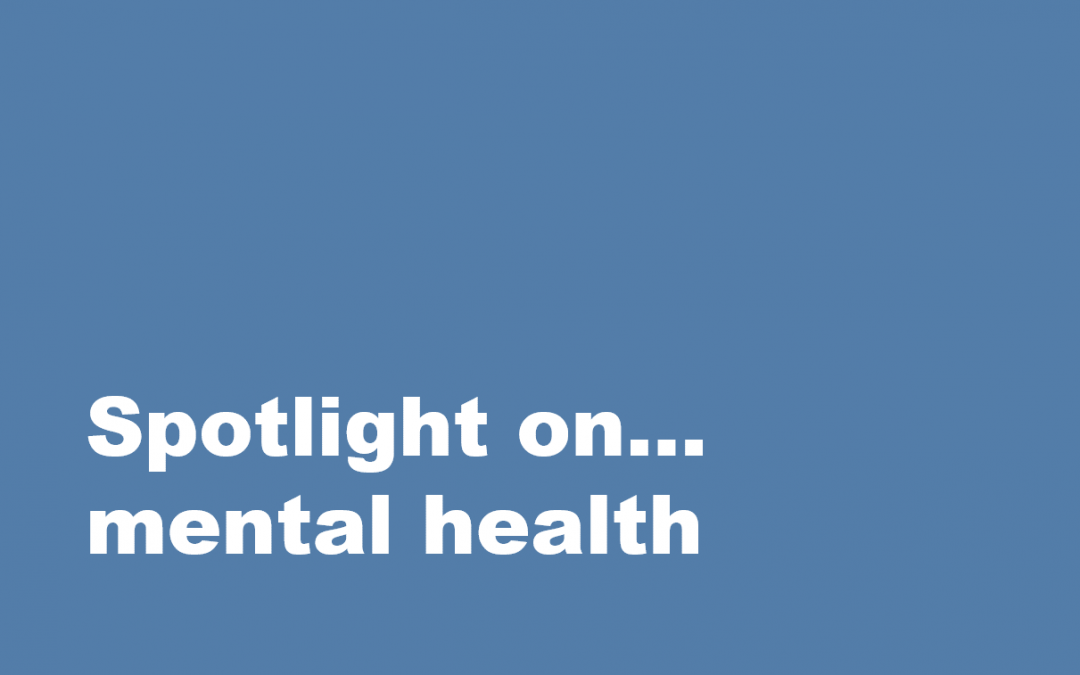New research suggests over half of employees used physical illness to explain their absence from work, when the cause was due to mental ill health. The research, commissioned by specialist stress at work lawyers from Slater and Gordon, indicates workers are taking an average of four ‘mental health days’ a year but lying about it to their boss for fear of being judged, demoted or sacked.
In addition, across the last five years, a quarter of people admit leaving at least one job due to pressure and the negative impact it was having on their mental health. One in six are still in a role causing them burnout, stress and anxiety.
In this article, we look at; how mental health is defined, some of the common types of mental health, symptoms you may experience and provide self-help techniques to help you manage it – alongside providing resources where you can find out more and seek advice.
WHAT IS MENTAL HEALTH?
The WHO (World Health Organization), mental health define mental health as: “… a state of well-being in which the individual realizes his or her own abilities, can cope with the normal stresses of life, can work productively and fruitfully, and is able to make a contribution to his or her community.”
TYPES OF MENTAL HEALTH
There are more than 200 classified forms of mental illness. Some of them have similar symptoms, so you may experience the symptoms of more than one mental health problem or be given several diagnoses at once. Or you might not have any diagnosis, but still be finding things very difficult. Everyone’s experience is different and can change at different times.
Some of the more common types include;
Depression
Depression is a feeling of low mood that lasts for a long time and affects your everyday life. It can make you feel hopeless, despairing, guilty, worthless, unmotivated and exhausted.
Anxiety problems
Anxiety is what we feel when we are worried, tense or afraid – particularly about things that are about to happen, or which we think could happen in the future.
Phobias
A phobia is an extreme form of fear or anxiety triggered by a situation (such as going outside) or object (such as spiders), even when it’s very unlikely to be dangerous.
Eating problems
Eating problems are not just about food. They can be about difficult things and painful feelings which you may be finding hard to face or resolve. Anyone, regardless of age, gender or weight, can be affected by eating problems.
Schizophrenia
Views on schizophrenia have changed over the years. Lots of people question whether it’s really a distinct condition, or actually a few different conditions that overlap. But you may still be given this diagnosis if you experience symptoms such as:
- psychosis (such as hallucinations or delusions)
- disorganised thinking and speech
- feeling disconnected from your feelings
- difficulty concentrating
- wanting to avoid people
- a lack of interest in things
- not wanting to look after yourself.
Obsessive-compulsive disorder (OCD)
Obsessive-compulsive disorder is a type of anxiety disorder. The term is often misused in daily conversation –for example, you might hear people talk about being ‘a bit OCD’, if they like things to be neat and tidy. But the reality of this disorder is a lot more complex and serious.
Personality disorders
Personality disorder is a type of mental health problem where your attitudes, beliefs and behaviours cause you longstanding problems in your life.
You can find out more about these on Mind’s website.
WHAT MIGHT YOU EXPERIENCE?
If you are experiencing mental health problems, here’s some feelings and behaviours which you may encounter:
- Panic Attacks
- Self-Harm
- Psychosis
- Suicidal feelings.
CAN I HELP MYSELF?
Self-care techniques and general lifestyle changes can help manage the symptoms of many mental health problems. They may also help prevent some problems from developing or getting worse. Here are some tips for looking after yourself that you might find helpful:
- talk to someone you trust
- try peer support
- try mindfulness
- look after your physical health
- try to keep active
- keep a mood diary
- spend time in nature
- practise self-care.
GETTING HELP FOR A MENTAL HEALTH PROBLEM
Seeking help is often the first step towards getting and staying well, but it can be hard to know how to start or where to turn to. There are many options for support out there, from speaking to your GP, to talking to specialist support groups (ie: Remploy), or speaking to your friends, families and work colleagues.
MENTAL HEALTH SUPPORT FOR APPRENTICES
This service, delivered by Remploy, funded by the Department for Work and Pensions is available to any apprentice who is experiencing mental health difficulties at work. There is no charge and it is delivered by trained professionals with expertise in mental health in the workplace. Find out more here.
USEFUL RESOURCES
Here’s some websites to get more information and support about Mental Health:
Mind.
Remploy – dedicated mental health support for Apprentices.
NHS – Information about NHS mental health services.
Time to Change – help & support services.

